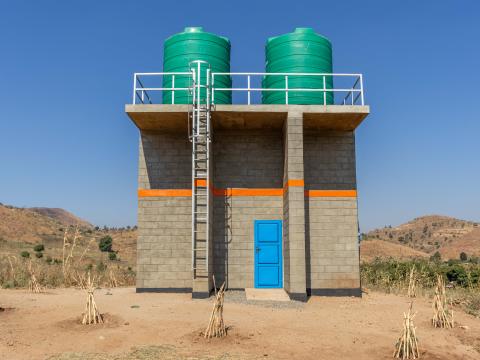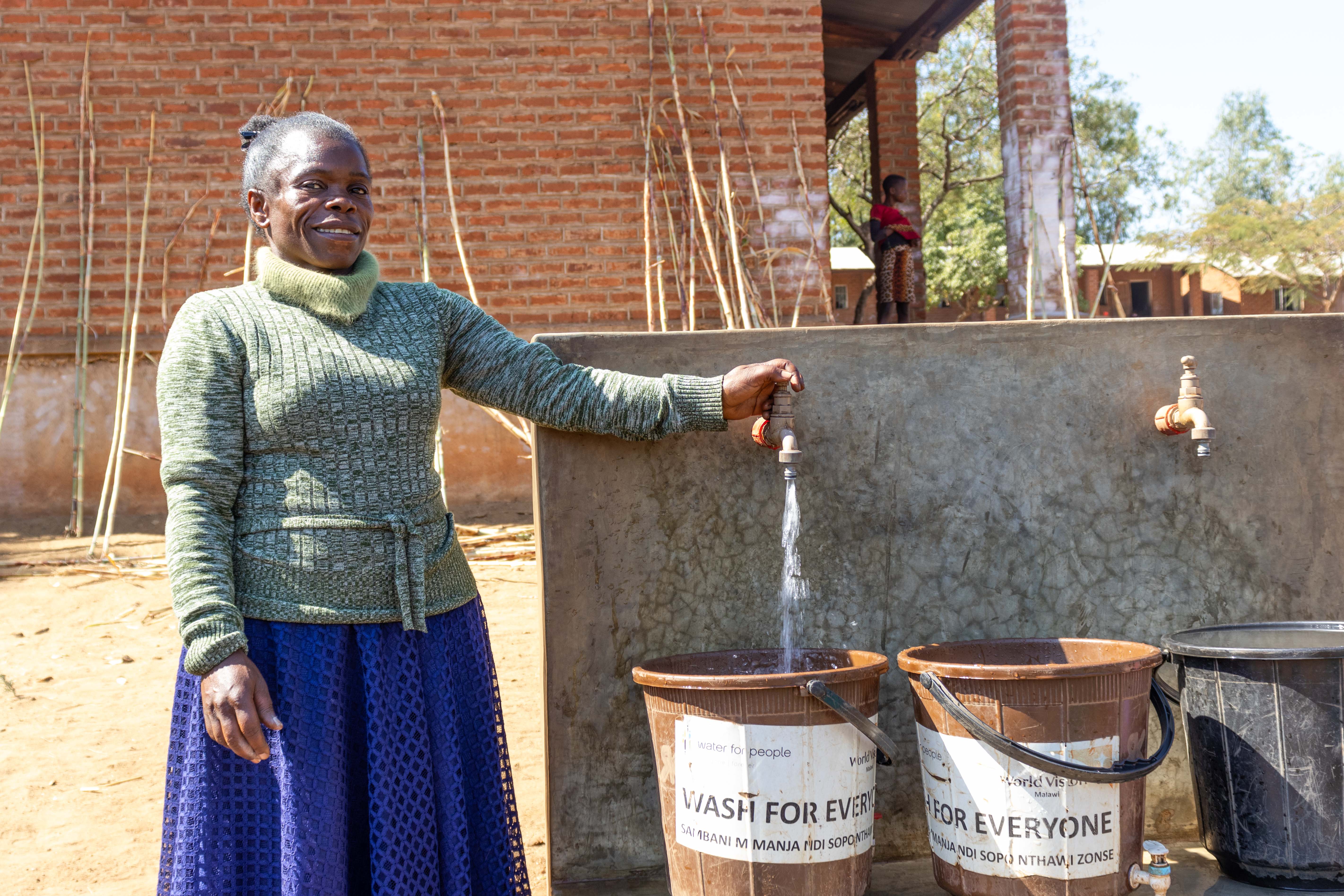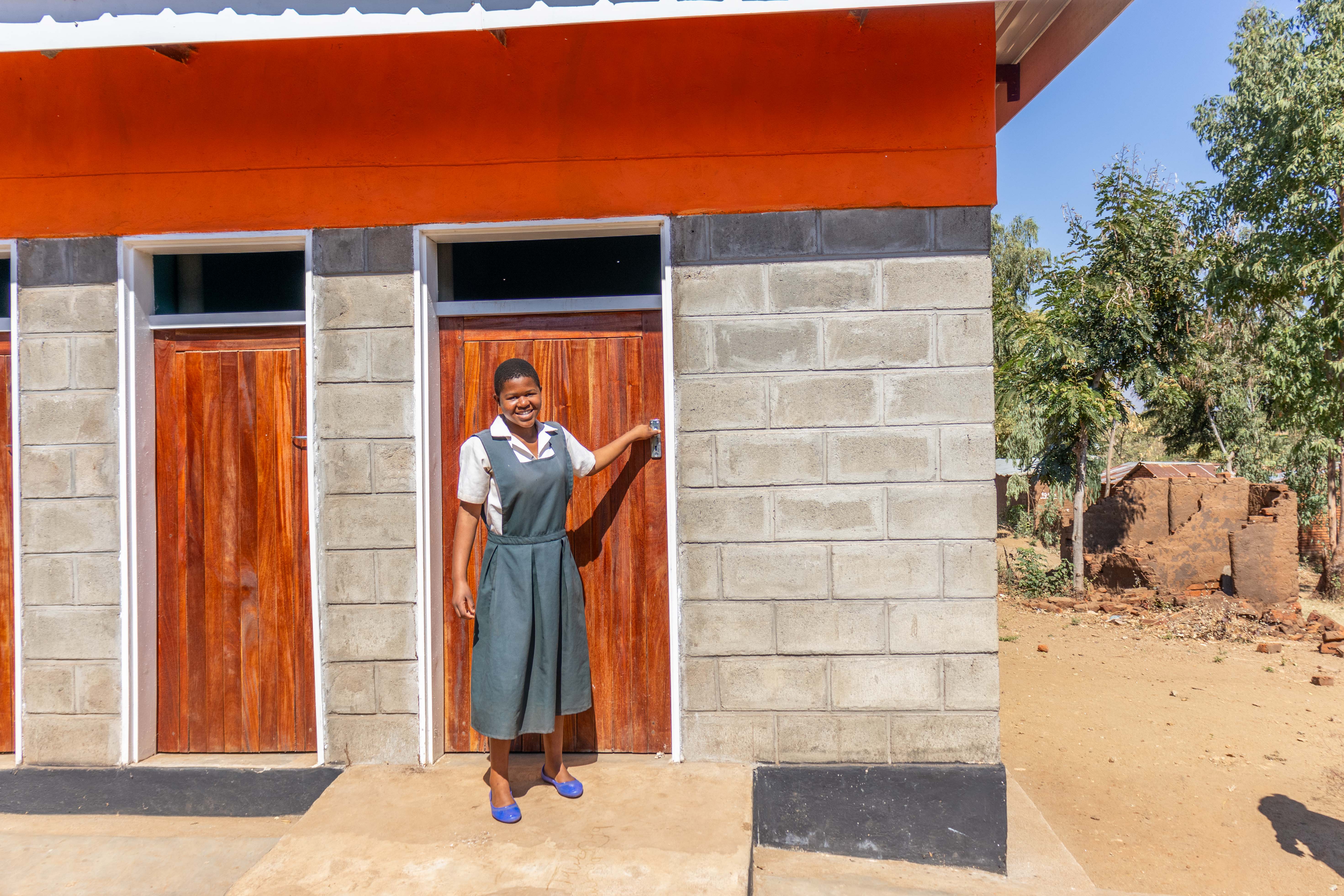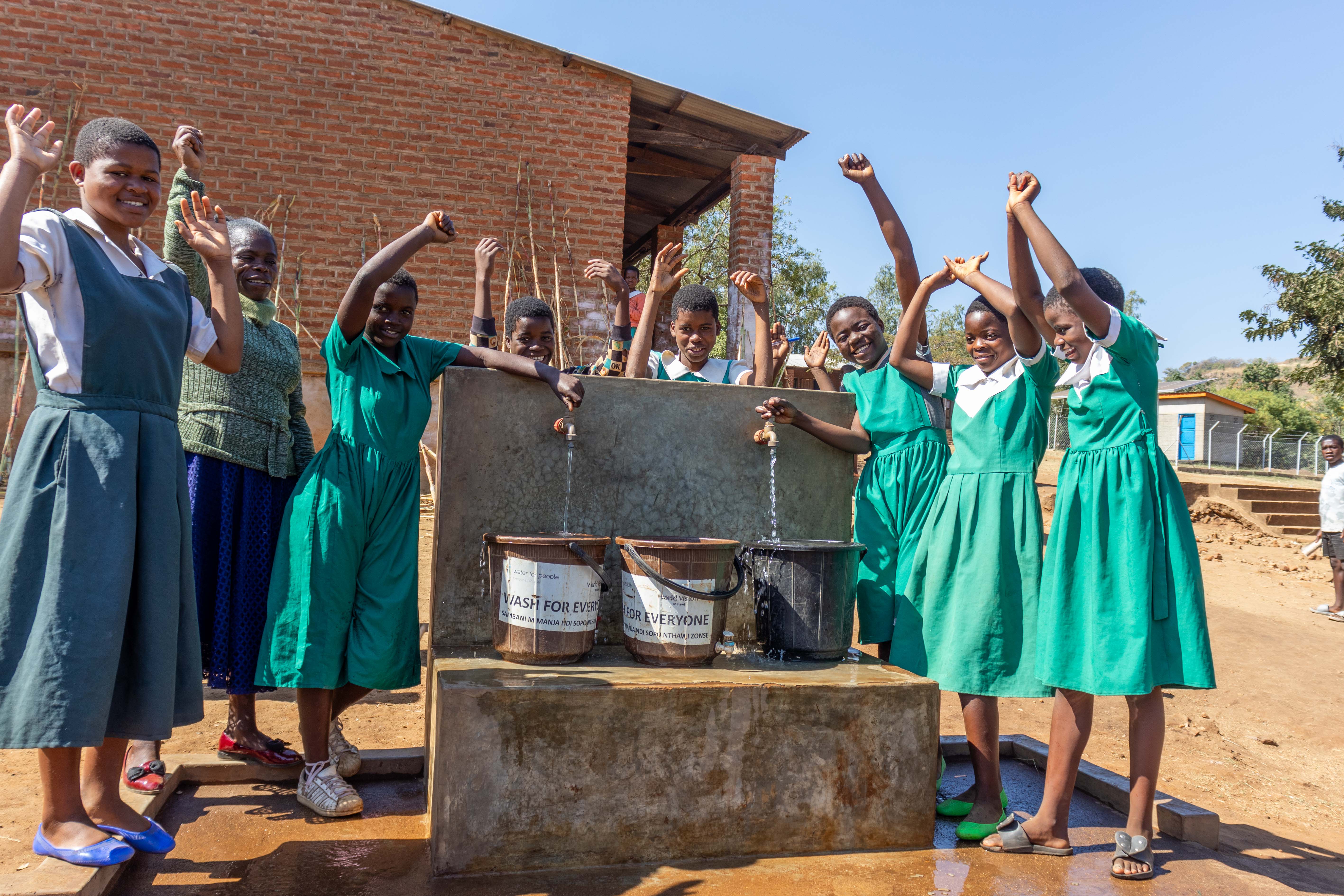How Portable Water Has Improved Menstrual Hygiene for Pupils at Kabwato Primary School

Portable water has improved Menstrual Hygiene for Pupils at Kabwato Primary School
By Trinity Kubalasa
Communications and External Engagement Manager, World Vision Malawi.
In May this year the world celebrated Menstrual Hygiene Management under the theme "Period Friendly World". The emphasis was on creating an environment where menstruation is no longer a barrier to education, health, and overall well-being.
The theme could not have been more appropriate for the pupils at Kabwato Primary School in Mjagaja Village Traditional Authority Chitela in Chiradzulu where menstrual hygiene was a headache for pupils for quite sometime due to lack of access to safe water.
Deputy Head Teacher Deborah Mopiha said due to water shortages at the school in the past, pupils, especially girls, were affected once they were in their monthly periods.
"Students were required to go back home to take care of themselves before they can rejoin class. By the time they come back their friends would have covered a lot of subjects. Others didn't even return to class but wait for days at home which meant they were missing a lot," she said.

Mopiha said there was only one borehole in the village servicing many people including students. She said students had queue to get water which meant sometimes they were late to report to class.
"In some cases the borehole would dry up especially in the dry season. It meant going to the river to get water from man made wells. This water was unsafe apart from the long distance to access such water," she said.
However, after World Vision Malawi brought portable water powered by solar power, the pupils at Kabwato Primary School no longer have problems accessing water to maintain sanitation and hygiene around the school.
The whole water system in Mjagaja Village has 14 kiosks translating to 28 water taps. The school enjoys a lions share as it has four kioks translating to 8 taps to serve all the 786 pupils.
Kettie , 16, who is in standard 7 said she no longer has to go back home when she experiences menstruation because she has everything she needs for Menstrual Health Management within the school.

"We have a special room for girls who are undergoing menstruation. The room has bucket, water, soap and everything we need. So we just go there are clean ourselves then go back to class without anyone noticing anything," she said.
Kettie said the situation has brought a lot of ease for the girls so that they have enough time to concentrate on their studies unlike in the past when they spent time looking for water and going back home to clean themselves.
The deputy head teacher said sanitation and hygiene have improved quality of education because pupils are able to access water nearby and clean classes and toilets to avoid diseases.
The teacher said she is hopeful that due to the excitement and concentration on studies since the coming of portable water to the school, the pass rate was likely to improve. Last year the school managed to select 70 pupils to secondary school. But the deputy head teacher said the figure is likely to improve because the pupils are happy and have less disturbances this time around.

Lemison Masache who is chairperson of the Mjagaja water system said the water started running in the village in March of 2023. He said the only challenge is that sometimes when there is less sunshine the water stops.